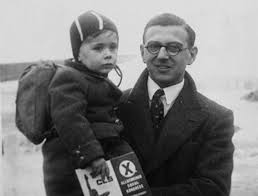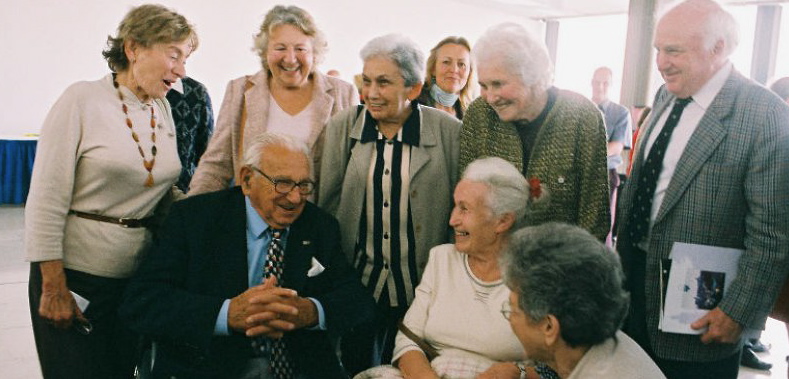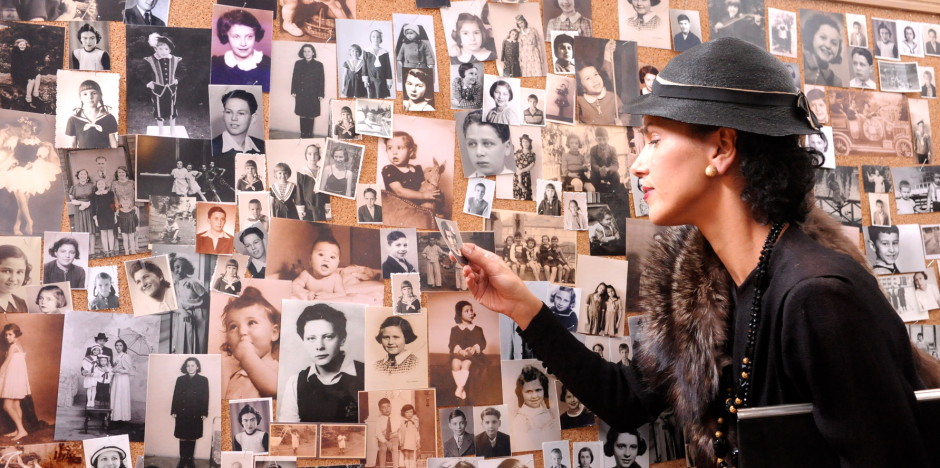Nicholas Winton, 104 today, is a hero in the deepest sense of the word. On the eve of World War II, he saved 669 Czech and Slovak Jewish children, who would have been murdered had they remained behind in Nazi-occupied Czechoslovakia. Winton, a British stockbroker, facilitated their escape to Britain within the framework of the now-legendary Kindertransport process.
Nicky’s Family, a poignant documentary that opens at the Kingsway Theatre in Toronto on Friday, Dec. 20, chronicles this heroic episode through interviews, file footage and dramatizations. It’s narrated by Joe Schlesinger, a retired foreign correspondent and one of the children Winton rescued.

This inspirational story starts in the winter of 1938, when Winton was about to embark on a ski holiday in Switzerland and changed his plans after receiving a phone call from a friend in Prague who was helping Jewish refugees. Winton joined him in the Czech capital and got to work.
He met parents who wanted to send their children out of harm’s way and wrote letters to foreign governments appealing for assistance. Only Britain responded to his overtures. Having found a destination to which he could send the children, Winton then proceeded to find foster parents willing to look after them.
Winton, whose German-Jewish parents converted to Christianity before he was born and baptized, is portrayed as a humanist, but the filmmakers do not go any further or deeper. Strangely enough, they do not ask him whether his Jewish heritage had an influence on his decision to lend a helping hand. This is a surprising omission, but it doesn’t diminish the film significantly.
Nicky’s Family, which is directed by Matej Minac and Patrick Pass, gathers momentum in emotional scenes in which distraught and tearful parents say goodbye to their children at Prague’s railway station. Tragically, nearly all the parents who sent their children to Britain were subsequently killed by the Nazis. Schlesinger, a Canadian who worked for the CBC television network, says he last received a letter from his parents in 1942. To this day, he does not know where they perished.
From Prague, the train passed through Germany, and was boarded by German troops without incident. When it reached Holland, there was an atmosphere of relief. “It’s as if the sun starting shining,” recalls an Israeli man who was aboard that train.
The children were next transported by ship across the English Channel to Britain, and then taken by train to Liverpool Station in London, where they were met by their foster parents.
After the war, the vast majority had to adapt to the bitter reality that they would never see their biological parents again. “We had to overcome the past,” says a man. “We had to start a new life.”

Winton, who enlisted in the Royal Air Force during the war, lost touch with the children. And oddly enough, he did not tell his wife what he had done. In 1988, she stumbled upon his scrapbook in their attic. It was full of documents and photographs concerning his rescue mission.
In the same year, the BBC broadcast a live show about Winton. Unbeknownst to him, more than two dozen of his “children,” now fully grown adults, were in the studio. One of the “children,” a woman old enough to be a grandmother, sat next to him. Until then, none of them had any idea who had masterminded their escape.
In one of the strongest scenes, Winton stares increduously at the woman, who smiles beatifically. As tears well up in his eyes, he dabs them away with a finger, staring at her with disbelief.
At this point, the hostess of the show rhetorically asks whether there are more “children” in the audience, and on cue, they stand up in unison. Winton looks back, and is stunned again.
“We are part of his family,” says a woman in gratitude.
Today, there are 5,700 people who are related to the children he rescued from the jaws of death.
Some family. Some man.
